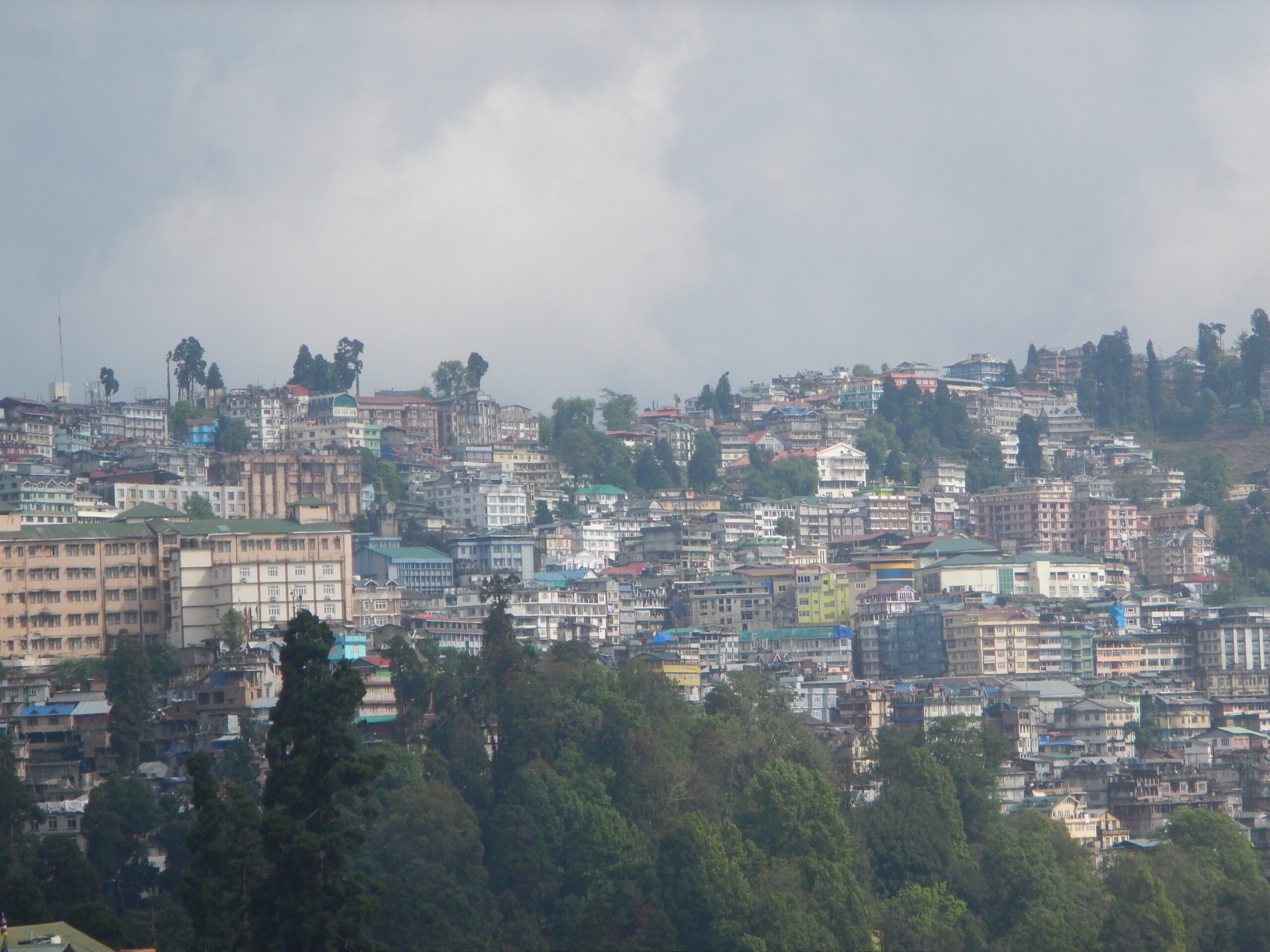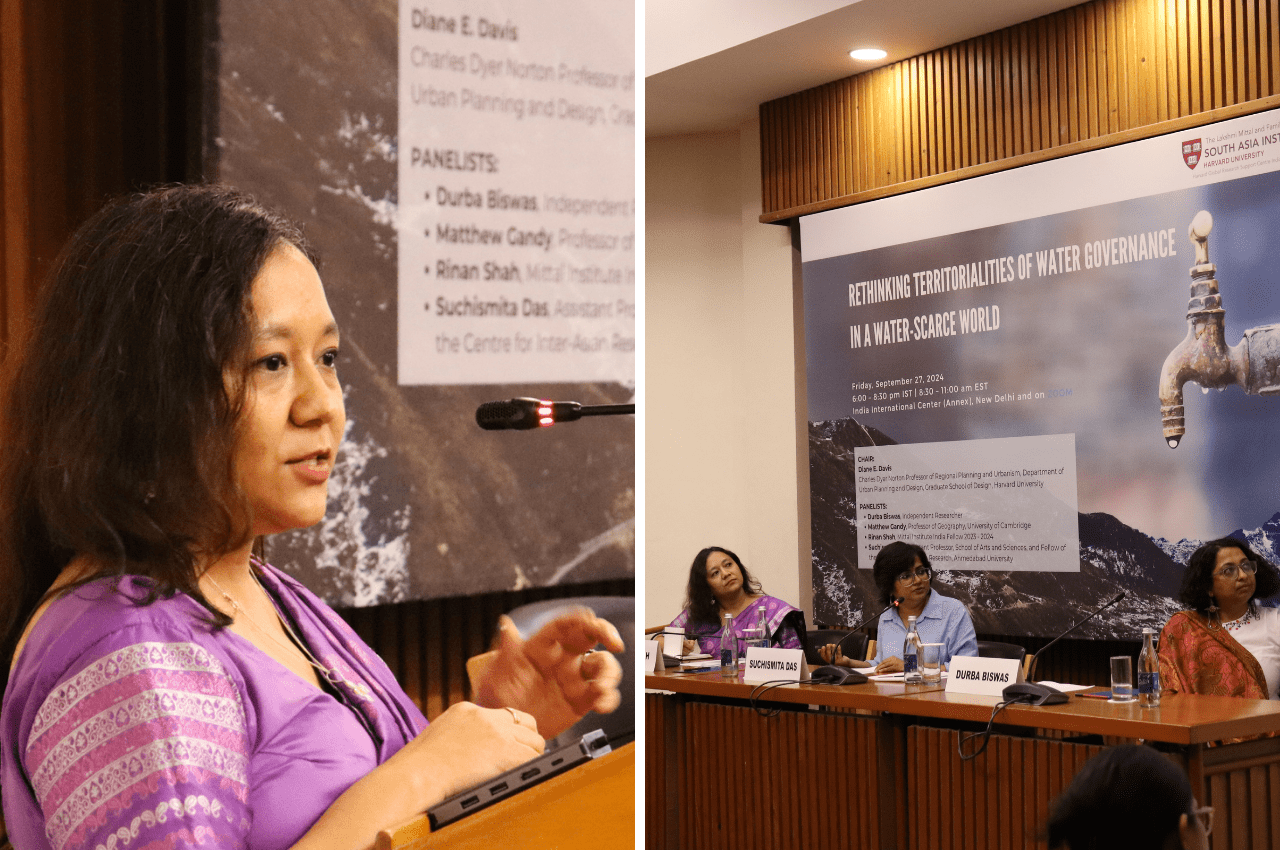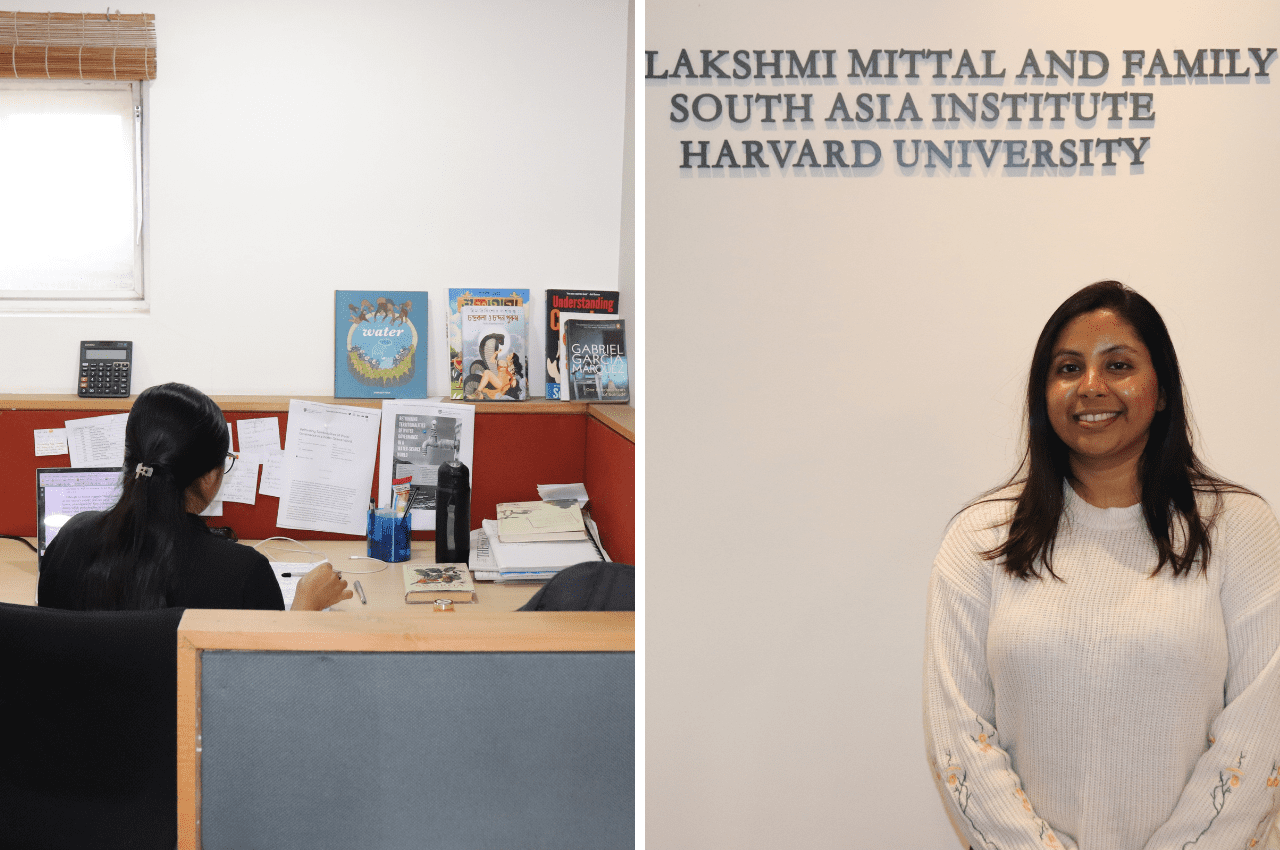In the quiet villages of the Himalaya, women rise before dawn to fetch water from hillside springs. In India’s crowded cities, households wait anxiously for tankers that may or may not arrive. Across the country, water flows—or fails to—through pipes, buckets, and stories carried in memory. These everyday scenes capture what statistics often cannot: the layered realities of India’s water crisis.
For two India Fellows at the Mittal Institute, exploring water through the lenses of governance, gender, and narrative has opened new ways of understanding this crisis. Instead of starting with scarcity as a number, their works ask us to see water as lived experience: shaped by boundaries, by politics, and by stories.

A city in the Indian Himalayas
Rinan Shah, the Mittal Institute India Fellow 2023-2024, currently a postdoctoral fellow at the Centre for Excellence in Himalayan Studies, Shiv Nadar Institution of Eminence, focuses on springs as a key but often overlooked source of water in the Himalayan region. These self-emerging groundwater sources are vital to many mountain communities but remain poorly represented in mainstream water governance frameworks.
“Springs are part of the groundwater system, yet they are rarely acknowledged in policies or legal frameworks,” she explains. Through her fieldwork in Darjeeling and Kalimpong, Shah has seen how infrastructure, terrain, and institutional boundaries shape water access. In Darjeeling, for instance, only a small percentage of households have municipal water connections despite the town’s long urban history.
Her research looks at the different types of boundaries—legal, administrative, ecological, and social—that influence access to water. She also explores the role of gender, highlighting how women, although central to household water management, are often excluded from formal decision-making processes.
As a former Mittal Institute India Fellow, Shah had the opportunity to take a more conceptual view of her work.
“Being in Delhi and at the Mittal Institute allowed me to engage with both academic and policy conversations,” she says. “It helped me reflect on how these boundaries interact and how we can think more holistically about water governance.”
During her fellowship, she worked closely with Diane E. Davis, Charles Dyer Norton Professor of Regional Planning and Urbanism at the Harvard Graduate School of Design, whose guidance helped her situate local water challenges within broader questions of governance, urbanization, and institutional frameworks.
Her methodology includes spring mapping using GPS tools, surveys on water sufficiency, and analysis of investment flows into water systems. Shah’s work is also informed by personal experience, having grown up in a small valley town, Bijanbari, in West Bengal, and later living in hill towns where she observed water-related challenges firsthand.

Rinan Shah, Mittal Institute India Fellow 2023-2024 (left) | Rinan’s at her end-of-fellowship seminar on “Rethinking Territorialities of Water Governance in a Water-Scarce World” (right)
While Shah approaches water through the tangible realities of springs, boundaries, and governance, her work also highlights how access to water is never just a technical question—it is deeply tied to identity, power, and lived experience. This is where the perspective of Nobonita Rakshit, the 2025 India Fellow at the Mittal Institute’s India Office, complements the conversation.
Rakshit turns to literature and visual storytelling to explore how water crises are felt, remembered, and represented. Working with Doris Sommer, Ira and Jewell Williams Professor of Romance Languages and Literatures and in African and African American Studies at Harvard University, her project titled “Water Crisis, Hydropolitics, and Graphic Literature” examines how Indian graphic narratives can translate abstract data into human stories.
Rakshit argues that while satellite images and statistics offer scale, they can miss the lived experience of water scarcity.
“India’s water crisis is not just about physical shortage. It is also about cultural perception and emotional response,” she says.
Her research investigates how graphic novels convey the socio-political dimensions of water scarcity and environmental change. Drawing from her doctoral work at IIT Roorkee on environmental crises in South Asian literature, Rakshit sees visual narratives as a powerful tool for public engagement. She refers to environmental humanist Jenia Mukherjee’s idea of an “epistempathetic imperative,” (the need to combine knowledge with empathy) where knowledge is shaped not just by information but also by empathy.

Nobonita working at her desk at the India Office (left) | Nobonita Rakshit, Mittal Institute India Fellow 2025 (right)
Both Shah and Rakshit believe that interdisciplinary approaches are essential to addressing the complexity of India’s water challenges. Shah’s mapping of springs and gendered access offers valuable insights into governance, while Rakshit’s exploration of graphic storytelling brings cultural and emotional depth to how water is understood.
They also see a need for more collaboration across disciplines and sectors. “Communities are already doing a lot, but supportive frameworks are needed to strengthen their efforts,” says Shah. She envisions the state as a facilitator that can provide resources, regulatory support, and coordination across institutions. Rakshit, on the other hand, highlights the importance of narrative in shifting public and policy attention. “Stories can help people connect emotionally to issues that might otherwise seem distant or technical,” she notes.
As India continues to grapple with the twin challenges of climate change and water stress, Shah and Rakshit offer complementary perspectives. Their work points to the importance of combining technical understanding with social, cultural, and narrative insight. Water, after all, does not only flow through pipes and policies. It flows through memory, identity, and everyday life. Whether through the quiet presence of a mountain spring or the vibrant panels of a graphic novel, these researchers remind us that understanding water requires more than just numbers. It requires listening—to people, to landscapes, and to the stories that emerge from them.
Written by Yuvika, Climate Coordinator at the Mittal Institute India office.
☆ The views represented herein are those of the interview subjects and do not necessarily reflect the views of the Mittal Institute, its staff, or its steering committee.
